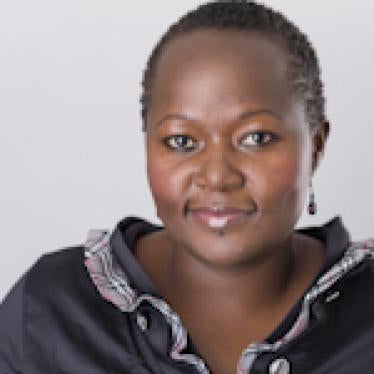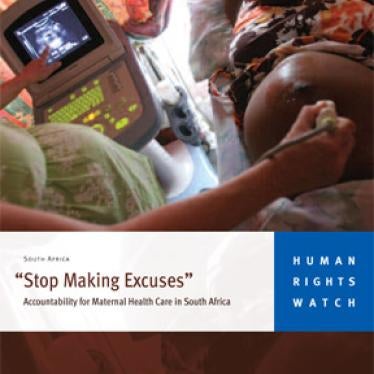Busisiwe was in labour for 36 hours but was turned away twice from a community health centre. When she was finally admitted, she gave birth to a boy and was discharged six hours later.
Two days later she returned, feeling weak. Again she was turned away by the same nurses. She died the next day at the general hospital.
"I felt the nurses were careless with my sister because they knew she was [HIV] positive and sick. They did not act quickly to save her," said Busisiwe's sister, Thuliswa. "I did not complain because I did not know where to go."
Busisiwe's story was only one of many tragic stories we heard while researching a report about maternal mortality. But it is a prime illustration of why the National Health Amendment Bill, published in January last year, needs to become law, and quickly.
The Bill is designed to address key shortcomings in the monitoring and oversight of the health system. Among other things, it would make several changes to the office of standards compliance, tasked with developing quality standards for the health sector and monitoring them.
Unacceptably low
At a briefing about the Bill, more than 18 months after it was published, the health department told the portfolio committee on health that current health standards were "unacceptably low".
South Africa's maternal mortality ratio, the internationally accepted measure of the number of women who die from pregnancy-related causes, provides a stark illustration of just how low the standards can be. At one point, the health department released data that indicated the ratio had increased tenfold since 1998. The figures were hotly contested and the department convened a committee that, after considering all the data, revised the ratio to 310 per 100 000 live births – it had doubled in the past decade.
But the Gauteng department of health announced some good news last week: it said it had reduced the ratio from 167.7 per 100 000 live births between 2005 and 2007 to 145 between 2008 and 2010. This is a significant reduction.
But South Africa's ratio remains unacceptably high and it is one of only six countries in Africa that has failed to make progress in reducing maternal deaths and one of five that has, in fact, experienced an increase. The others are Zimbabwe, Lesotho, Botswana and Malawi.
Thuliswa was one of more than 150 women we interviewed for an August 2011 report that documented human rights abuses of pregnant women and new mothers in several Eastern Cape public health facilities. The province has some of the worst health indicators in the country, including high levels of maternal and infant deaths. The women recounted their experiences in public hospitals and clinics.
They were physically abused, including being slapped and pinched. They were called names by nurses and other healthcare workers. Some were denied access to care, whereas others had to wait for a long time before they were admitted to hospital or seen by a healthcare worker. Migrant and refugee women experienced particularly high levels of abuse.
Maternal healthcare
The abuses documented in the report put pregnant women, new mothers and newborn babies at risk of death and injury and undermined efforts by the government to improve maternal healthcare.
The report identified two serious gaps: first, in how health authorities identify and correct systemic problems and, second, in the inadequate oversight and monitoring of existing health laws and policies. In particular, the report highlighted both the patients' and their families' awareness of and the weakness of mechanisms for making complaints about abuse or substandard treatment.
The new Bill improves the existing office of health standards compliance. The new office and an ombud will have the jurisdiction to ensure that complaints are investigated properly and dealt with by an independent mechanism. They will also have the power to compel healthcare providers, health establishments, facilities and workers to comply with the norms and standards of the national health system.
These provisions, if the Bill is adopted in its current form, will go a long way towards addressing the abuses we documented in the Eastern Cape and protecting the health and safety of pregnant women and new mothers.
The Bill gives the office significant powers of investigation and monitoring. It will be able to inspect health facilities and determine whether they comply with prescribed national norms and standards – and make information about compliance publicly available. The office will have the power to investigate complaints of breaches of the norms and standards and make recommendations to the minister to ensure compliance.
Although some questions remain about the independence of the ombud, it is hoped that the position will support and reinforce the work of the office.
But almost 21 months after the Bill was introduced, public consultations are still under way. At the parliamentary briefing in September, no information was provided about when it was likely to become law.
Meanwhile women like Thuliswa still do not know where to turn when confronted with a tragic display of irresponsibility. Without action to provide crucial information about the healthcare system and to fix it, there will be more Busisiwes and babies like her who will never know their mothers.







